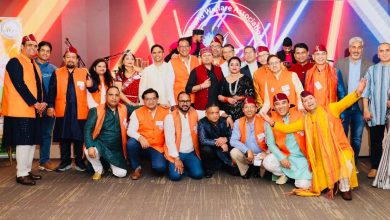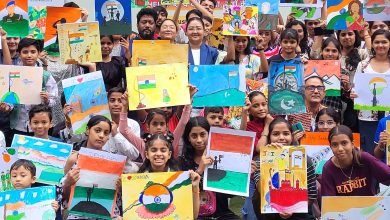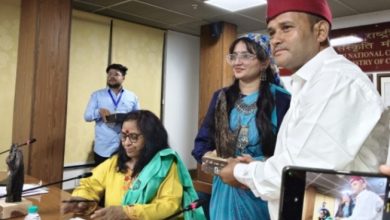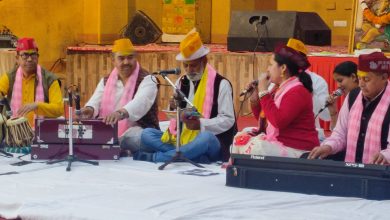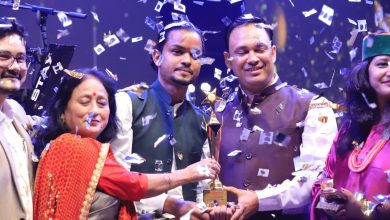Centre for Buddhist Studies at JNU Hosts Special Lecture on the Lankavatara Sutra
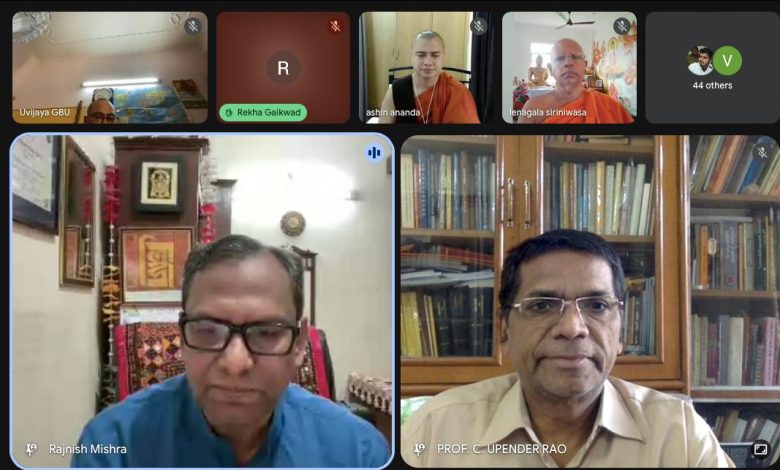
New Delhi, 14 September 2025 — The Centre for Buddhist Studies, housed within the School of Sanskrit and Indic Studies (SSIS) at Jawaharlal Nehru University (JNU), Bharat, organised a distinguished online lecture titled “Buddha’s Teachings in the Lankavatara Sutra (Chapter Eight)” on Sunday, 14th September 2025. The session took place via Google Meet from 9:30 AM to 12:00 noon IST.d9
hdrForward: 0; shaking: 0.028079; highlight: 1; algolist: 0;
multi-frame: 1;
brp_mask: 8;
brp_del_th: 0.0000,0.0028;
brp_del_sen: 0.1000,0.1000;
delta:null;
module: photo;hw-remosaic: false;touch: (-1.0, -1.0);sceneMode: 3145728;cct_value: 0;AI_Scene: (0, 0);aec_lux: 325.0;aec_lux_index: 0;albedo: ;confidence: ;motionLevel: 0;weatherinfo: null;temperature: 35;zeissColor: bright;
The lecture was delivered by Ven. Prof. Lenagala Siriniwasa Thero, a noted scholar and professor from the Department of Sanskrit, Buddhist, and Pali University of Sri Lanka. The event was held under the patronage of Prof. Santishree Dhulipudi Pandit, Hon’ble Vice Chancellor of JNU. The session was chaired by Prof. C. Upender Rao, Coordinator of the Centre for Buddhist Studies and a professor at SSIS, JNU. The welcome address was given by Prof. Rajnish Kumar Mishra, Dean, SSIS, JNU.
The program commenced with Prarthana recitation by Ven. Bhikkhu Anand, Ven. Bhikkhu Vijaya, and Ven. Bhikkhu Vannitajoti, all Ph.D. scholars from the School of Buddhist Studies and Civilisation at Gautam Buddha University (GBU).
In his welcome speech, Prof. Rajnish Kumar Mishra expressed his reverence for the visiting speaker and provided context for the establishment of the Centre for Buddhist Studies at JNU. He announced the upcoming launch of academic programs in Hindu, Buddhist, and Jain Studies within the SSIS, highlighting the recent admission of Ph.D. scholars in these disciplines. He emphasised the need to interpret India's spiritual traditions through an indigenous lens, rather than through modern conflicting narratives, often propagated without deep understanding.
Prof. Mishra noted that various thought systems within Indian traditions—though seemingly contradictory—are in fact deeply interconnected. He urged scholars to appreciate and study these systems holistically, advocating for intellectual openness and cross-traditional engagement.
The main lecture by Ven. Prof. Lenagala Siriniwasa Thero focused on the ethical and philosophical foundations of vegetarianism as outlined in the eighth chapter of the Lankavatara Sutra. He explained how the Bodhisattva, guided by compassion, avoids meat consumption to facilitate spiritual transformation and to cultivate purity in body and mind. The speaker cited the Buddha’s firm rejection of meat-eating, particularly through the concept of Trikoti Parishuddhi, emphasising that no meat can truly be pure in origin.
He further argued that consuming meat contradicts the values of compassion and wisdom, asserting that yogis and practitioners should avoid meat entirely, as supported by several original sutra phrases. He concluded that vegetarianism is not only a personal ethical practice but a universal message rooted in Buddhist teachings—one that influenced large-scale cultural adoption in countries like China and Japan.
In his concluding remarks, Chairperson Prof. C. Upender Rao expressed his deep appreciation for the insightful interpretation of the Lankavatara Sutra presented by Ven. Prof. Lenagala Siriniwasa Thero. He noted that the lecture illuminated the rich philosophical and ethical dimensions within Mahayana Buddhism, particularly regarding the theme of ahimsa (non-violence) and the Bodhisattva's path. He emphasised that Chapter Eight of the Lankavatara Sutra, which addresses the abstention from meat, marks a theologically significant departure from earlier Theravāda and mainstream Buddhist perspectives, where Buddhists consume non-vegetarian food based on “trikoti parishuddhi”.
Prof. Rao called upon scholars and students to delve deeper into Mahayana sutras like the Lankavatara Sutra, which continue to challenge, enrich, and expand our understanding of Buddhist philosophy. He asserted that the vivid rhetoric and passionate arguments against meat-eating found in this text offer fertile ground for further academic, philosophical, and comparative study—especially in the context of contemporary global discourses on sustainability, ethics, and non-violence. Concluding his remarks, he noted that engaging with such scriptures not only enhances textual scholarship but also inspires a more compassionate and thoughtful way of living.
The event concluded with an engaging question-and-answer session in which students and scholars actively participated in discussions about Buddhist ethics, textual interpretations, and inter-religious studies. Mr. Ankit Dvivedi, a student in the Diploma of Proficiency in Pali at the school, delivered the vote of thanks. The event was a success, with around 60 attendees consistently participating throughout.

